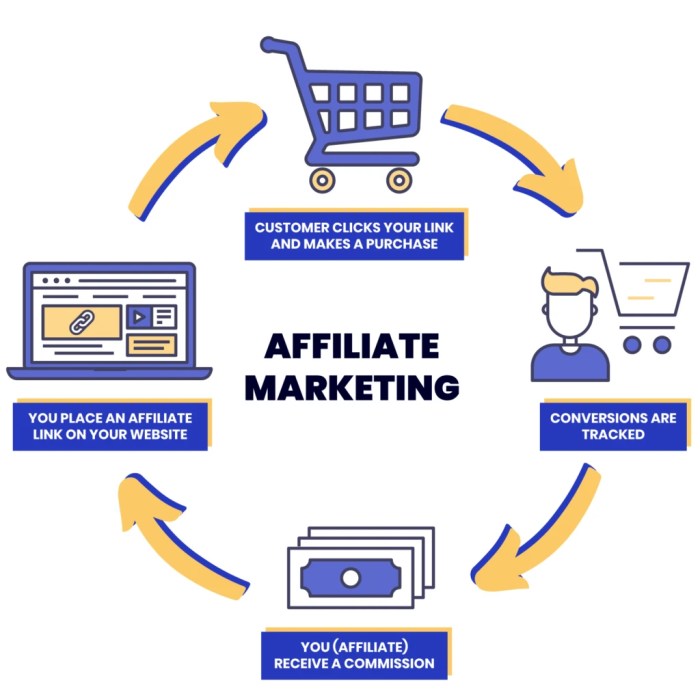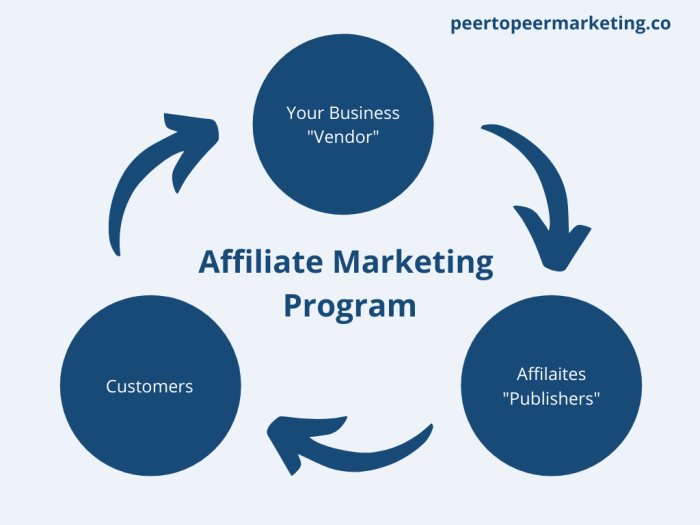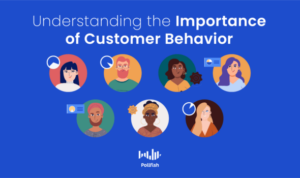Creating an Affiliate Program kicks off the hustle with a cool vibe, breaking down the ins and outs of this lucrative online game. Get ready to level up your business savvy!
Whether you’re a newbie or a seasoned entrepreneur, this guide will walk you through the steps of setting up, recruiting affiliates, and maximizing performance like a boss.
Introduction to Affiliate Programs
An affiliate program is a marketing strategy where businesses reward individuals (affiliates) for driving traffic or sales to their website through the affiliate’s marketing efforts. Affiliates earn a commission for each sale or lead generated through their unique affiliate link.Creating an affiliate program can bring numerous benefits to businesses, including increasing brand awareness, expanding reach to new audiences, boosting sales, and improving search engine ranking.
By leveraging the network of affiliates, businesses can tap into new markets and promote their products or services effectively.
Examples of Successful Affiliate Programs
- Amazon Associates: One of the largest affiliate programs, allowing affiliates to earn up to 10% in advertising fees for promoting Amazon products.
- Shopify Affiliate Program: Offering affiliates up to $2,000 for each customer referred to Shopify, along with recurring commissions on customer purchases.
- Booking.com Affiliate Partner Program: Allowing affiliates to earn commission on every booking made through their referral link, with potential earnings based on the number of bookings.
Setting Up an Affiliate Program

Setting up an affiliate program can be a game-changer for your business, providing a cost-effective way to drive sales and increase brand awareness. Here are the key steps and components you need to consider for a successful affiliate program:
Key Components for a Successful Affiliate Program
- Clear Commission Structure: Define the commission rates and terms for affiliates to ensure transparency and motivation.
- Quality Products or Services: Offer products or services that are in demand and provide value to customers to attract potential affiliates.
- Tracking and Analytics: Implement tracking technology to monitor affiliate performance and optimize your program for better results.
- Effective Communication: Maintain open communication with affiliates to provide support, updates, and feedback to foster strong relationships.
- Compliance and Legal Guidelines: Ensure compliance with relevant laws and regulations to protect your business and affiliates from any legal issues.
Tips for Choosing the Right Affiliate Marketing Platform
- Consider Your Needs: Evaluate your business goals, budget, and technical requirements to find a platform that aligns with your specific needs.
- Features and Tools: Look for platforms that offer robust features such as tracking, reporting, and payment processing to streamline your affiliate program.
- User-Friendly Interface: Choose a platform with an intuitive interface that makes it easy for both you and your affiliates to navigate and manage the program.
- Reputation and Support: Research the platform’s reputation, customer reviews, and level of customer support to ensure you receive assistance when needed.
- Scalability: Select a platform that can accommodate the growth of your affiliate program and provide scalability options as your business expands.
Recruiting Affiliates
To build a successful affiliate program, recruiting affiliates is key. You need to attract the right partners who can effectively promote your products or services to their audience. Here are some strategies to help you recruit affiliates and create strong relationships with them.
Creating Compelling Affiliate Recruitment Materials
When recruiting affiliates, it’s essential to provide them with compelling recruitment materials that clearly Artikel the benefits of joining your program. This can include a detailed overview of your products or services, commission structure, and promotional tools available to affiliates. Make sure to highlight what sets your program apart from others and why affiliates should choose to work with you.
- Design eye-catching banners and graphics that affiliates can use on their websites or social media channels.
- Write persuasive copy that clearly explains the value proposition of your program.
- Create a comprehensive affiliate guide that includes step-by-step instructions on how to get started and maximize earnings.
Remember, the more enticing your recruitment materials are, the more likely you are to attract high-quality affiliates who can drive sales and generate revenue for your business.
Building Relationships with Affiliates
Once you’ve recruited affiliates, it’s crucial to build and maintain strong relationships with them to ensure their continued engagement and success in promoting your products or services. Here are some best practices for fostering positive relationships with affiliates:
- Communicate regularly with affiliates to provide updates on new products, promotions, and performance metrics.
- Offer personalized support and guidance to help affiliates optimize their marketing strategies and maximize their earnings.
- Reward top-performing affiliates with exclusive bonuses, incentives, or increased commission rates to incentivize continued growth and loyalty.
By focusing on creating compelling recruitment materials and building strong relationships with your affiliates, you can attract top-notch partners and drive success for your affiliate program.
Commission Structures and Incentives
Commission structures and incentives play a crucial role in the success of an affiliate program. By offering attractive rewards and incentives, you can motivate affiliates to drive more traffic and sales to your business.
Different Commission Structures
- Percentage-Based Commission: Affiliates earn a percentage of the total sale amount generated through their referral link.
- Fixed Commission: Affiliates receive a set amount for each successful referral, regardless of the sale value.
- Tiered Commission: Affiliates earn increasing commission rates as they reach specific referral milestones.
Importance of Offering Attractive Incentives
- Boosts Motivation: Attractive incentives motivate affiliates to put in more effort and drive better results.
- Increases Loyalty: Offering competitive rewards helps in retaining top-performing affiliates and building long-term partnerships.
- Stands Out Among Competitors: By providing unique and appealing incentives, you can attract high-quality affiliates and stand out in the market.
Creative Incentive Programs, Creating an Affiliate Program
- Performance Bonuses: Offering bonuses for achieving specific sales targets or milestones can motivate affiliates to push harder.
- Exclusive Discounts or Offers: Providing affiliates with exclusive discounts or offers for their audience can incentivize them to promote your products/services more enthusiastically.
- Contests and Rewards: Organizing contests with exciting prizes for top-performing affiliates can create a sense of competition and drive performance.
Tracking and Monitoring Performance
In the world of affiliate marketing, tracking and monitoring performance metrics are crucial for the success of your program. By keeping a close eye on how your affiliates are performing, you can make informed decisions to optimize your program and maximize your profits.
Importance of Tracking Affiliate Performance Metrics
- Tracking affiliate performance metrics allows you to identify your top-performing affiliates and reward them accordingly.
- It helps you understand which marketing strategies are working and which ones need improvement.
- Monitoring performance metrics can also help you detect any fraudulent activities and take necessary actions to protect your program.
Tools and Software for Monitoring Affiliate Activities
- Google Analytics: A powerful tool for tracking website traffic and conversions generated by your affiliates.
- Affiliate Tracking Software: Platforms like Refersion, Post Affiliate Pro, and Tapfiliate offer comprehensive tracking and reporting features.
- Performance Dashboards: Custom dashboards can be created to monitor key performance indicators (KPIs) specific to your affiliate program.
Tips for Analyzing Data to Optimize Affiliate Performance
- Regularly review performance reports to identify trends and patterns in affiliate activity.
- Experiment with different commission structures and incentives to see what motivates affiliates to perform better.
- Use A/B testing to compare the effectiveness of different promotional materials and landing pages.
Managing Relationships with Affiliates: Creating An Affiliate Program
Building and maintaining strong relationships with affiliates is crucial for the success of an affiliate program. It not only helps in maximizing the performance of affiliates but also fosters loyalty and trust, ultimately leading to long-term partnerships.
Effective Communication Strategies
Effective communication is key when it comes to managing relationships with affiliates. Here are some strategies to ensure clear and consistent communication:
- Provide regular updates and feedback to affiliates regarding their performance and any program changes.
- Utilize multiple communication channels such as email, phone calls, and messaging platforms to stay connected with affiliates.
- Offer personalized support and guidance to address any questions or concerns that affiliates may have.
Conflict Resolution and Issue Addressing
Conflicts and issues are bound to arise in any business relationship, including those with affiliates. Here are some ways to effectively resolve conflicts and address issues with affiliates:
- Listen actively to the concerns of affiliates and strive to understand their perspective before responding.
- Seek common ground and work towards finding mutually beneficial solutions to conflicts.
- Establish clear guidelines and protocols for conflict resolution to ensure a fair and transparent process.
Promotional Strategies for Affiliate Programs

When it comes to promoting affiliate programs, there are various strategies that can be utilized to attract customers through affiliates. Content marketing, social media, and play crucial roles in promoting affiliate programs. Let’s dive into some successful promotional campaigns for affiliate programs.
Content Marketing
Content marketing is a powerful tool for promoting affiliate programs. By creating valuable and engaging content that resonates with the target audience, affiliates can attract customers effectively. This can include blog posts, videos, infographics, and more. For example, a beauty influencer partnering with a skincare brand to create a video tutorial showcasing the product’s benefits can drive traffic and conversions.
Social Media
Social media platforms offer a wide reach for promoting affiliate programs. Affiliates can leverage platforms like Instagram, Facebook, Twitter, and Pinterest to showcase products/services to their followers. By engaging with their audience through compelling posts, stories, and live videos, affiliates can drive traffic to the merchant’s site. An example of this is a fashion blogger partnering with a clothing brand to post styled outfit photos with affiliate links.
(Search Engine Optimization)
is essential for driving organic traffic to affiliate websites. By optimizing content with relevant s, meta tags, and backlinks, affiliates can improve their site’s visibility on search engines like Google. This can lead to increased traffic and conversions. For instance, a tech review site publishing -friendly articles about the latest gadgets with affiliate links can attract tech-savvy consumers.












